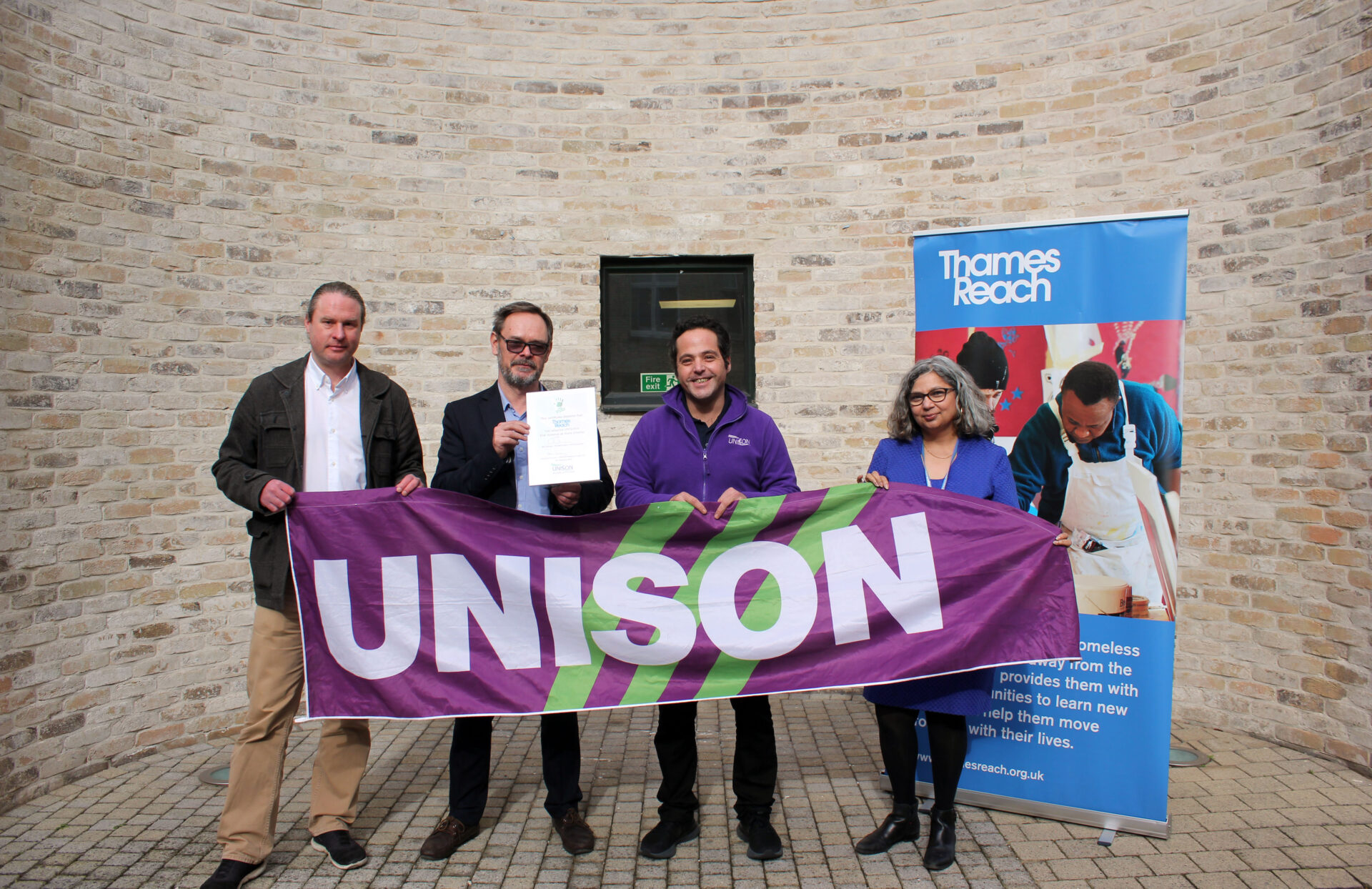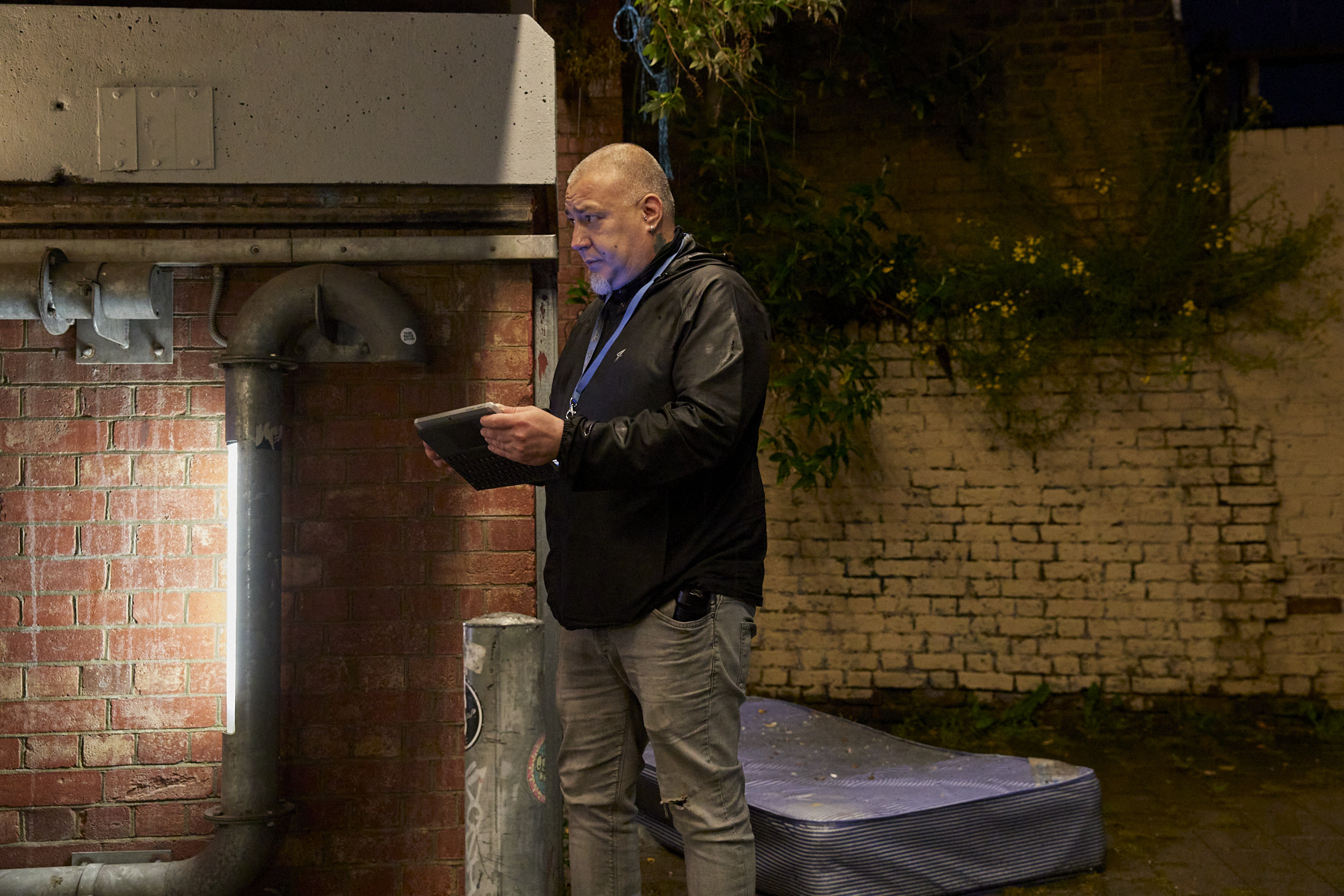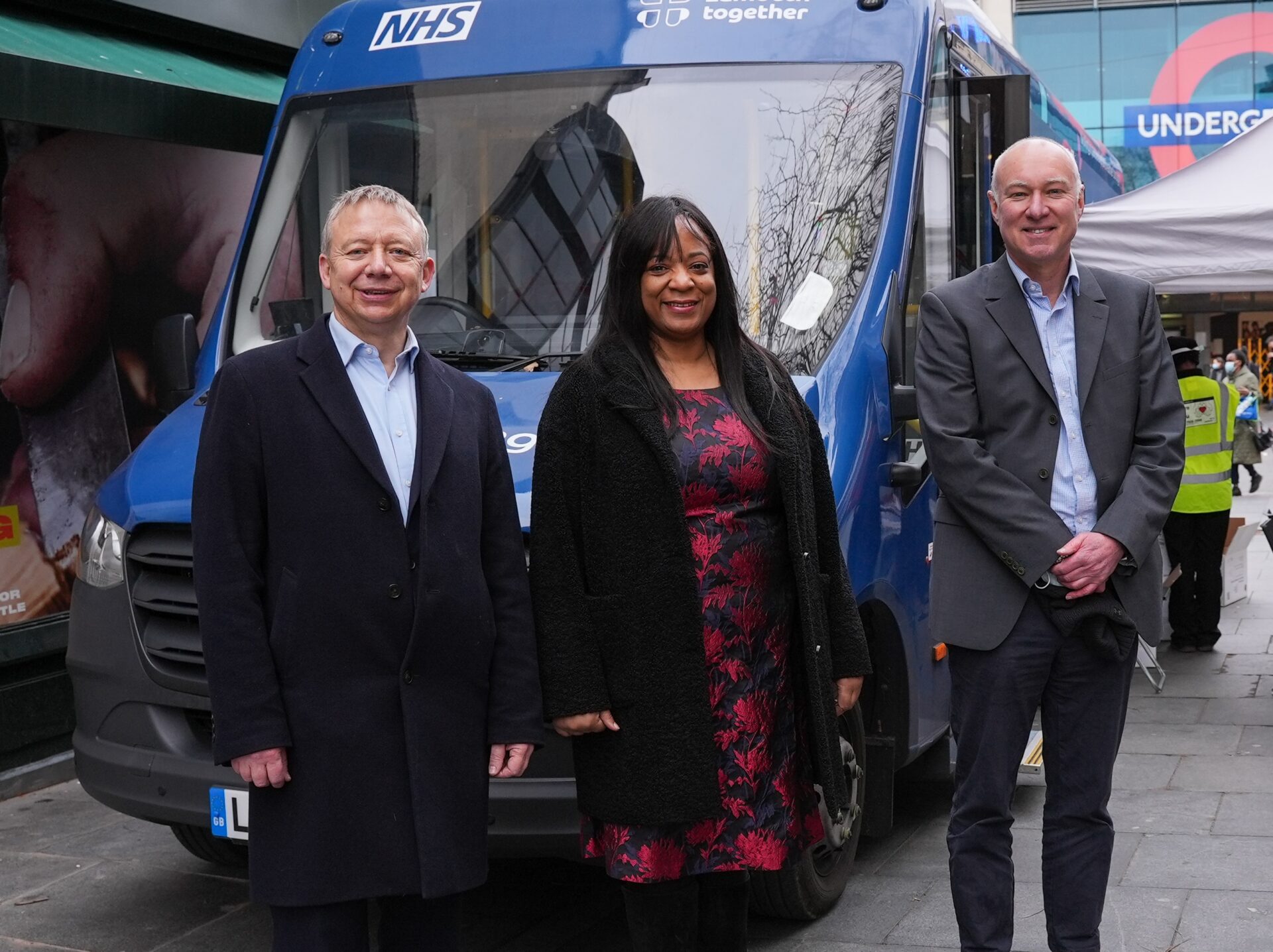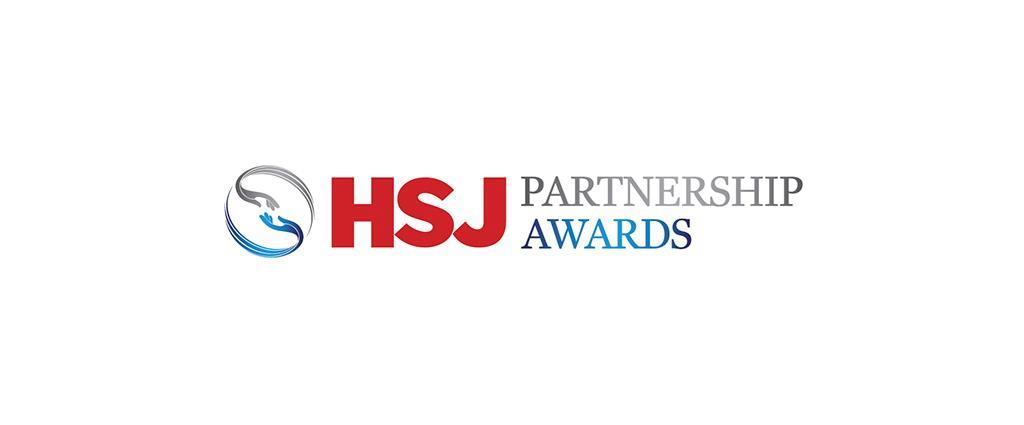Thames Reach sign UNISON End Violence at Work Charter
Thames Reach have signed UNISON’s landmark End Violence at Work Charter.

Thames Reach are pleased to announce that we have signed UNISON’s End Violence at Work Charter. Thames Reach are working on UNISON’s ten-point plan in order to ensure safer working conditions for staff across all our services.
On Wednesday 23 February, UNISON reps Ezequiel Kramer and John Bond visited Thames Reach’s Employment Academy to sign the document with our Chief Executive Bill Tidnam, and were joined by Director of People, Joanna Mark-Richards, and Director of Central Services and Finance, Paul Jackson, to express support for the charter across Thames Reach as an organisation.
To qualify for the UNISON End Violence at Work Charter mark, employers must meet the following standards:
1. The employer has a written violence and aggression at work policy, including lone working, which is available to all staff.
2. Responsibility for implementing these policies lies with a senior manager.
3. Measures are taken to reduce staff working in isolated buildings, offices or other work areas to a minimum.
4. Staff are encouraged to report all violent incidents and they are told how to do this.
5. The employer collects and monitors data on violent incidents on a regular and ongoing basis.
6. Where they are in place, union safety reps are able to access this data and are consulted on solutions to issues relating to violence in the workplace.
7. Thorough risk assessments are conducted for staff placed in vulnerable situations.
8. The employer has support pathways in place for staff who are victims of violence at work, so that they know where to turn for advice and support.
9. Training to ensure staff are aware of the appropriate way to deal with threatening situations.
10. Where appropriate, independent counselling services are available to staff who are the victims of violence at work.
Thames Reach Chief Executive, Bill Tidnam, says: “Our response to violence whether physical or through abuse targeted at an individual, or group, requires a more sensitive approach than simple exclusion from a service. In many cases we are the only service working with an individual who has had a long history of service exclusion. That is why we wanted to work with UNISON to sign up to the End Violence at Work Charter. This wasn’t simply a matter of signing on the dotted line; getting to this point has meant looking at how we manage and mitigate risk, how we respond to violence as an organisation, how we record and review incidents, how we train and support staff, as well as how we work in partnership. We look forward to continuing this important work.”
More on UNISON’s End Violence at Work Charter can be found on their website.



